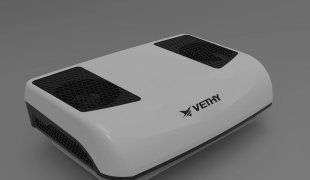Comparative Analysis of KoyoRad and Mishimoto All-Aluminum Radiators
April 14, 2024
Choosing the right all-aluminum radiator for your vehicle can significantly impact its performance and reliability, especially in high-demand scenarios like racing or intense driving. Two of the leading brands in the market for all-aluminum radiators are KoyoRad and Mishimoto. Both have established strong reputations, but depending on your specific needs, one might suit you better than the other.
Performance
KoyoRad radiators are well-regarded for their superior engineering and efficient cooling capabilities. They utilize a high-density core that maximizes cooling efficiency without increasing radiator size, making them a top choice for performance enthusiasts who need reliable heat management under extreme conditions.
Mishimoto, on the other hand, also offers high-performance radiators that are known for their durability and ability to handle significant thermal loads. Their products often include innovative designs, such as built-in oil coolers and advanced fin pitches, which help in enhancing heat dissipation and improving airflow.
Build Quality and Design
KoyoRad features meticulously welded seams and robust construction, making their radiators strong candidates for both street performance and racing. They often use a thicker core material, which while slightly heavier, provides better heat dissipation.
Mishimoto radiators are designed with versatility in mind, suitable for a broad range of makes and models. They often incorporate direct-fit design principles that facilitate easy installation without the need for extensive modifications.
Compatibility
KoyoRad excels in developing vehicle-specific solutions, particularly for Japanese cars. Their fitments are highly precise, which means they are a go-to for owners of vehicles like Honda, Nissan, and Toyota.
Mishimoto offers a wider range of compatibility, not only covering a vast array of car models but also providing solutions for trucks and jeeps. Their universal fit options make them a versatile choice for a diverse customer base.
Price
KoyoRad radiators are generally positioned at a higher price point compared to Mishimoto, reflecting their specialized nature and slightly superior build quality for specific vehicle models.
Mishimoto provides a more cost-effective solution while still maintaining high quality. They offer a good balance of price and performance, which makes them attractive to a broader audience, including budget-conscious enthusiasts.
Warranty and Customer Support
Mishimoto stands out with its impressive lifetime warranty, a testament to their confidence in the durability of their products. This warranty can be particularly appealing for those who anticipate extensive use of their vehicles in demanding conditions.
KoyoRad offers a limited warranty that covers defects in material and workmanship. While not as extensive as Mishimoto's, it reflects their commitment to quality and reliability.
Innovation
KoyoRad is known for its continuous improvement in radiator technology, focusing on enhancing core efficiency and heat exchange capabilities. Their approach often revolves around optimizing existing designs to improve performance and durability in high-stress conditions.
Mishimoto frequently pushes the envelope in cooling technology by integrating new materials and design techniques, such as their patented brazing process, which ensures exceptional durability and cooling efficiency. Their products often come with added functionalities, such as built-in thermostats or advanced fin configurations.
Advantages: Mishimoto’s approach to innovation provides a broader range of options and custom features that cater to a diverse customer base.
Disadvantages: KoyoRad’s conservative approach might limit its appeal to users looking for cutting-edge features.
Environmental Impact
KoyoRad emphasizes the use of recyclable materials in their radiators and practices environmentally responsible manufacturing processes to minimize waste and energy consumption.
Mishimoto also focuses on sustainability, with initiatives aimed at reducing the environmental footprint of their products and operations, such as using recycled materials in their packaging and promoting radiator recycling programs.
Advantages: Both brands show a strong commitment to environmental sustainability.
Disadvantages: Specific details on the effectiveness of these initiatives can sometimes be lacking, making it hard for consumers to gauge the true environmental impact.
User Feedback and Market Reputation
KoyoRad enjoys a solid reputation among automotive enthusiasts, especially in the Japanese car market, for reliability and performance. They are highly regarded in forums and reviews, particularly for their OEM replacement products.
Mishimoto is praised in the performance automotive community for their innovative designs and the versatility of their product range. They are popular among younger audiences and in the modding community, thanks to their aesthetic enhancements and performance upgrades.
Advantages: Mishimoto’s engagement with a broader audience provides them with more visibility and diverse feedback.
Disadvantages: KoyoRad’s niche focus might limit its feedback loop to a smaller group of consumers.
Design Flexibility
KoyoRad specializes in direct-fit radiators, offering solutions that require minimal modifications for installation, which is a significant advantage for users looking for hassle-free upgrades.
Mishimoto offers a mix of universal and direct-fit products, allowing for greater flexibility in application across various vehicle makes and models, including custom setups.
Advantages: Mishimoto’s broader range provides options for more consumers, including those with custom needs.
Disadvantages: KoyoRad’s focus on direct-fit might not cater to users seeking unique or extensive modifications.
After-sales Support
KoyoRad provides solid after-sales support with a dependable warranty that underscores their confidence in product quality, although it might not be as comprehensive as some competitors.
Mishimoto offers a standout lifetime warranty, coupled with active customer service that assists with installation, troubleshooting, and replacements.
Advantages: Mishimoto’s lifetime warranty is a significant selling point, providing long-term security for buyers.
Disadvantages: KoyoRad’s more limited warranty period could be a drawback for some consumers.
Global Reach and Supply Chain Stability
KoyoRad has a strong presence in Asia and North America, benefiting from a well-established supply chain that ensures product availability and timely delivery.
Mishimoto has expanded aggressively in international markets, offering their products globally through various distributors and retailers, which enhances their market penetration but can lead to variability in supply chain efficiency.
Advantages: Mishimoto’s global reach allows them to serve a wider audience.
Disadvantages: Potential supply chain issues could affect Mishimoto’s ability to consistently meet global demand, unlike KoyoRad’s more stable but region-focused supply chain.





